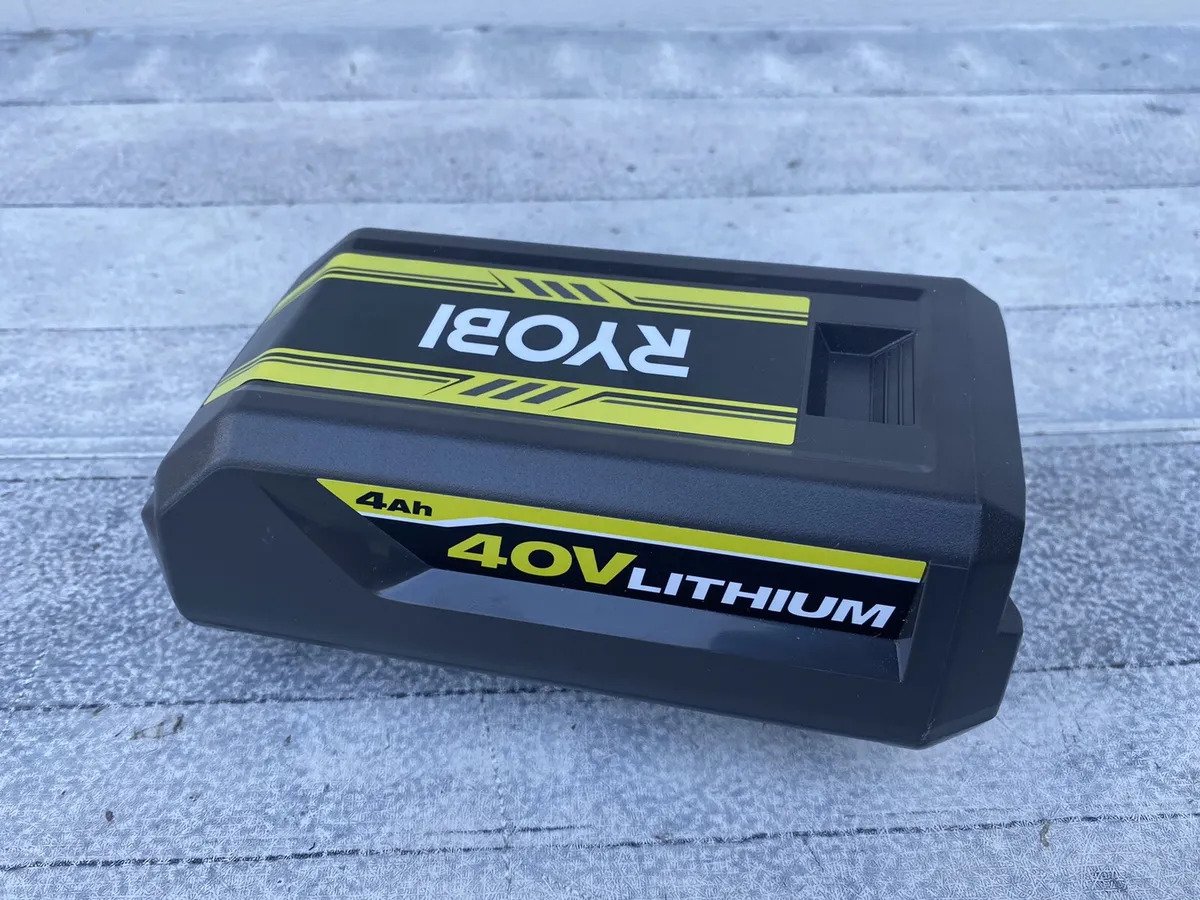

Articles
Why Do Ryobi Batteries Not Last?
Modified: February 23, 2024
Discover the reasons behind the limited lifespan of Ryobi batteries in this informative article. Learn how to extend the longevity of your power tools' batteries.
(Many of the links in this article redirect to a specific reviewed product. Your purchase of these products through affiliate links helps to generate commission for Storables.com, at no extra cost. Learn more)
Introduction
Welcome to our comprehensive guide on understanding why Ryobi batteries may not last as long as expected. Ryobi is a well-known brand that produces a wide range of power tools and accessories, including batteries. While Ryobi batteries are generally reliable and efficient, there are instances where users may experience issues with their battery lifespan.
Getting to the root of the problem requires a deeper understanding of how Ryobi batteries work, the common issues users face, and the steps you can take to maximize battery longevity. In this article, we will explore the most common factors that contribute to short battery life and provide you with practical tips on how to maintain and extend the lifespan of your Ryobi batteries.
So, if you’ve noticed a decline in your Ryobi battery’s performance or are simply interested in learning more about how to optimize battery usage, read on to discover everything you need to know.
Key Takeaways:
- Proper charging and discharging practices, regular maintenance, and avoiding extreme temperatures can extend the lifespan of Ryobi batteries, ensuring reliable power for your tools and projects.
- Understanding common issues like reduced runtime and slow charging, along with implementing proactive measures, can help optimize the performance and longevity of Ryobi batteries, maximizing their efficiency for various tasks.
Read more: How Long Does Ryobi Battery Last
Understanding Ryobi Batteries
Before we dive into the reasons why Ryobi batteries may not last as long as expected, let’s first gain a basic understanding of how these batteries are designed and operate.
Ryobi batteries are typically lithium-ion (Li-ion) batteries, which are known for their high energy density, lightweight construction, and longer lifespan compared to other battery types. These batteries use a lithium compound as the primary component for storing and releasing electrical energy.
One of the key advantages of Ryobi batteries is their compatibility with a wide range of Ryobi power tools. They are designed to deliver reliable power and can provide sufficient runtime to handle various tasks, whether you’re using a cordless drill, trimmer, or saw.
Ryobi batteries usually come in different capacities, indicated by ampere-hour (Ah) ratings. A higher Ah rating indicates a larger capacity, which means the battery can deliver power for a longer duration before needing to be recharged.
In addition to the capacity, Ryobi batteries also feature intelligent battery management systems (BMS) that help optimize performance and protect against over-discharge, overcharge, and overheating. The BMS helps regulate the charging and discharging process to ensure safety and prevent damage to the battery.
Now that we have a basic understanding of Ryobi batteries, let’s explore some of the common issues users encounter with them in the next section.
Common Issues with Ryobi Batteries
While Ryobi batteries are generally reliable, there are a few common issues that users may encounter. Understanding these issues can help you troubleshoot problems and take necessary steps to improve battery performance. Here are some of the most common issues:
1. Reduced Runtime:
One of the main complaints users have is a decrease in the runtime of their Ryobi batteries over time. This can occur due to various factors, including battery age, frequent charging and discharging cycles, and environmental conditions. If you notice a significant decrease in the runtime of your battery, it may be a sign that it’s time for a replacement.
2. Slow Charging:
Some users may experience slower-than-expected charging times for their Ryobi batteries. This can be frustrating, especially when you need to use your power tools urgently. Slow charging can be caused by a faulty charger, a damaged battery, or poor electrical connections. It’s important to troubleshoot and identify the specific cause of the slow charging to address the issue effectively.
3. Overheating:
In certain instances, Ryobi batteries may become excessively hot during use or while charging. Overheating can occur due to prolonged or high-intensity use of power tools, exposure to extreme temperatures, or a malfunctioning battery. Overheating not only affects the performance of the battery but also poses safety risks. If you notice your battery getting too hot, it’s advisable to stop using it and allow it to cool down before further use.
4. Premature Failure:
While Ryobi batteries are designed for long-term use, there may be cases where the battery fails prematurely. This can be attributed to manufacturing defects, improper storage methods, or other external factors. If your battery fails to hold a charge or becomes unresponsive, even after proper maintenance, it may require a warranty claim or replacement.
It’s important to note that not all users may experience these issues, and the severity can vary. However, being aware of these common problems will help you take proactive measures to mitigate them and improve the overall performance of your Ryobi batteries.
Battery Charging and Discharging
To ensure optimal performance and longevity of your Ryobi batteries, it’s important to understand the process of charging and discharging. Proper charging and discharging practices can significantly impact the overall lifespan and runtime of your batteries. Here’s what you need to know:
Charging:
When it comes to charging your Ryobi batteries, it’s essential to follow the manufacturer’s guidelines and use the recommended charger. Avoid using chargers that are not specifically designed for Ryobi batteries, as they may not provide the correct voltage or charging algorithm.
Before charging, ensure that your battery is clean and free from any debris or dust. Connect the charger to a power outlet, then insert the battery into the charger until it securely clicks into place. The charger’s indicator lights will typically display the charging progress, so you can monitor when the battery is fully charged.
It’s important to note that overcharging your battery can lead to decreased runtime and potentially shorten its lifespan. Once your Ryobi battery is fully charged, remove it from the charger promptly to avoid overcharging.
Read more: How Long Does A Ryobi 4Ah Battery Last
Discharging:
Discharging refers to the process of using the stored energy in your Ryobi battery to power your tools. When using your power tools, try to avoid fully discharging the battery. Lithium-ion batteries, like those used in Ryobi tools, have a longer lifespan when they are not discharged fully.
Instead, it’s recommended to recharge your batteries when they reach around 20-30% remaining capacity. This practice, known as partial discharging, helps preserve the overall health and longevity of the battery.
If you’re not planning to use your power tools for an extended period, it’s also advisable to store your Ryobi batteries at around 50% capacity. This charge level helps prevent the battery from self-discharging too much or remaining fully charged for an extended period, which can be detrimental to its overall lifespan.
By following proper charging and discharging practices, you can optimize the performance and lifespan of your Ryobi batteries, ensuring they are ready to power your tools whenever you need them.
Battery Maintenance and Care
Proper maintenance and care are crucial for maximizing the lifespan and performance of your Ryobi batteries. By following these simple guidelines, you can ensure that your batteries stay in optimal condition:
1. Cleanliness:
Regularly clean the contacts on the battery and the corresponding contacts on your power tools. Dust, dirt, and debris can accumulate over time and hinder the proper transfer of power. Use a clean, dry cloth or a soft brush to gently clean the contacts and remove any buildup.
2. Storage:
When not in use, store your Ryobi batteries in a cool, dry place away from direct sunlight or extreme temperatures. High temperatures can accelerate the self-discharge rate of the battery and potentially damage its internal components. Consider using a dedicated storage case or organizer to protect your batteries from physical damage.
Read more: How Long Does A Ryobi 18V Battery Last
3. Avoid Water Exposure:
Avoid exposing your Ryobi batteries to excessive moisture or water. Water can damage the internal components and compromise the performance and safety of the battery. If your battery accidentally comes into contact with water, dry it off thoroughly before use.
4. Avoid Overheating:
Prevent your Ryobi batteries from overheating by avoiding prolonged periods of high-intensity use or exposure to extreme temperatures. Overheating can lead to reduced battery performance, shortened lifespan, and potential safety hazards. If you notice your battery becoming excessively hot, allow it to cool down before further use.
5. Compatibility:
Ensure that you use Ryobi batteries that are specifically designed for your power tools. Mixing different battery models or using third-party batteries can pose compatibility issues and may not provide optimal performance.
Following these maintenance and care tips will help ensure that your Ryobi batteries stay in top shape, providing reliable power and longevity to your tools.
Possible Reasons for Short Battery Life
If you’ve noticed that your Ryobi batteries are not lasting as long as expected, several factors could contribute to this issue. Understanding these potential reasons can help you identify and address the problem effectively. Here are some possible reasons for short battery life:
Read more: How Do You Charge A Ryobi Battery
1. Battery Age:
Over time, batteries naturally degrade and lose their capacity to hold a charge. If you’ve been using your Ryobi batteries for an extended period, their overall lifespan may be coming to an end. Consider replacing older batteries to restore optimal performance and runtime.
2. Frequent Charging and Discharging Cycles:
The frequency of charging and discharging cycles can impact the overall lifespan of your batteries. If you consistently drain your batteries to low levels and frequently recharge them, it can accelerate the wear and tear process and result in shorter battery life. Try to implement partial charging and avoid fully discharging the batteries for prolonged periods to mitigate this issue.
3. Environmental Factors:
Extreme temperature conditions can adversely affect battery performance. High temperatures can cause the battery to overheat and degrade more quickly, while very cold temperatures can impede the battery’s ability to deliver power effectively. Avoid exposing your batteries to extreme temperature variations and store them in a cool, dry place when not in use.
4. Improper Charging Habits:
Charging your Ryobi batteries using chargers that are not specifically designed for them can affect their performance and lifespan. Using incorrect voltage or incompatible chargers can result in inadequate charging or overcharging, leading to decreased battery life. Always use the recommended chargers provided by Ryobi for optimal results.
Read more: How Long Does A 40V Ryobi Battery Last
5. Power Tool Compatibility:
In some cases, the power tools themselves may not be optimized for maximum battery life. Poorly calibrated tools or excessive power usage can strain the batteries and cause them to deplete quickly. Double-check the compatibility between your power tools and batteries to ensure they are well-suited for each other.
6. Lack of Battery Maintenance:
Neglecting proper battery maintenance, such as cleaning the contacts or storing the batteries in unfavorable conditions, can contribute to reduced battery life. Regularly clean the battery contacts and store the batteries in a cool, dry place to maintain their performance and longevity.
By considering these potential reasons for short battery life, you can take the necessary steps to mitigate the issues and optimize the performance of your Ryobi batteries.
How to Extend the Lifespan of Ryobi Batteries
While some factors affecting battery life may be beyond your control, there are proactive measures you can take to prolong the lifespan of your Ryobi batteries. By implementing these tips, you can optimize battery performance and get the most out of your power tools. Here’s how to extend the lifespan of your Ryobi batteries:
1. Proper Charging Practices:
Follow the manufacturer’s guidelines for charging your Ryobi batteries. Use the recommended chargers and avoid overcharging or leaving the batteries connected to the charger for extended periods. Unplug the charger once the battery is fully charged to prevent overcharging and unnecessary stress on the battery.
Read more: How Long Does A Ryobi 1.5 Ah Battery Last
2. Partial Discharging:
Avoid fully discharging your Ryobi batteries whenever possible. Instead, recharge them when they reach around 20-30% remaining capacity. Partial discharging helps preserve battery life and can significantly extend overall battery longevity.
3. Store Batteries Properly:
Store your Ryobi batteries in a cool, dry place away from direct sunlight and extreme temperature fluctuations. Extreme temperatures can degrade battery performance and shorten their lifespan. Additionally, when storing batteries for an extended period, aim for around 50% charge to maintain optimal battery health.
4. Clean Battery Contacts:
Regularly clean the battery contacts using a clean, dry cloth or a soft brush. Dust, dirt, and debris can inhibit proper electrical contact and affect battery performance. Cleaning the contacts ensures a secure connection and optimal power transfer between the battery and power tool.
5. Avoid High-Intensity Use:
Avoid pushing your power tools and batteries to their limits for extended periods. High-intensity, continuous use can generate excess heat and put strain on the battery, leading to decreased lifespan. When possible, take breaks during heavy-duty tasks to allow the battery and power tool to cool down.
6. Use Power-Saving Settings:
If your power tools offer power-saving settings or variable speed options, utilize them. Lowering the power output when it’s not necessary can help conserve battery energy and reduce the overall wear and tear on the battery.
7. Use Compatible Power Tools:
Ensure that your power tools are compatible with the specific Ryobi batteries you are using. Using mismatched or incompatible tools can put undue stress on the batteries, impacting their performance and longevity. Refer to the manufacturer’s recommendations for optimal power tool and battery pairings.
By implementing these practices, you can extend the lifespan of your Ryobi batteries, ensuring reliable performance and longer usage durations for your power tools.
Conclusion
In conclusion, Ryobi batteries are reliable power sources for a range of Ryobi power tools. However, understanding the factors that can affect their lifespan and implementing proper care and maintenance practices is essential for maximizing their performance and longevity.
Throughout this comprehensive guide, we’ve explored the common issues users may face with Ryobi batteries, such as reduced runtime, slow charging, overheating, and premature failure. We’ve also discussed the importance of proper charging and discharging practices, as well as battery maintenance and care.
To extend the lifespan of your Ryobi batteries, it’s crucial to adhere to recommended charging practices, avoid fully discharging the batteries, and store them in appropriate conditions. Regular cleaning of the battery contacts and selecting compatible power tools are additional steps you can take to optimize battery performance.
By implementing these strategies, you can ensure that your Ryobi batteries provide reliable power, longer runtimes, and extended overall lifespan, giving you the efficiency and productivity you need for your projects.
Remember, while some factors affecting battery life may be beyond your control, taking proactive measures to care for your batteries will go a long way in maximizing their longevity and getting the most out of your Ryobi power tools.
So, follow the guidelines outlined in this guide, and enjoy the extended lifespan and improved performance of your Ryobi batteries for many projects to come.
Frequently Asked Questions about Why Do Ryobi Batteries Not Last?
Was this page helpful?
At Storables.com, we guarantee accurate and reliable information. Our content, validated by Expert Board Contributors, is crafted following stringent Editorial Policies. We're committed to providing you with well-researched, expert-backed insights for all your informational needs.
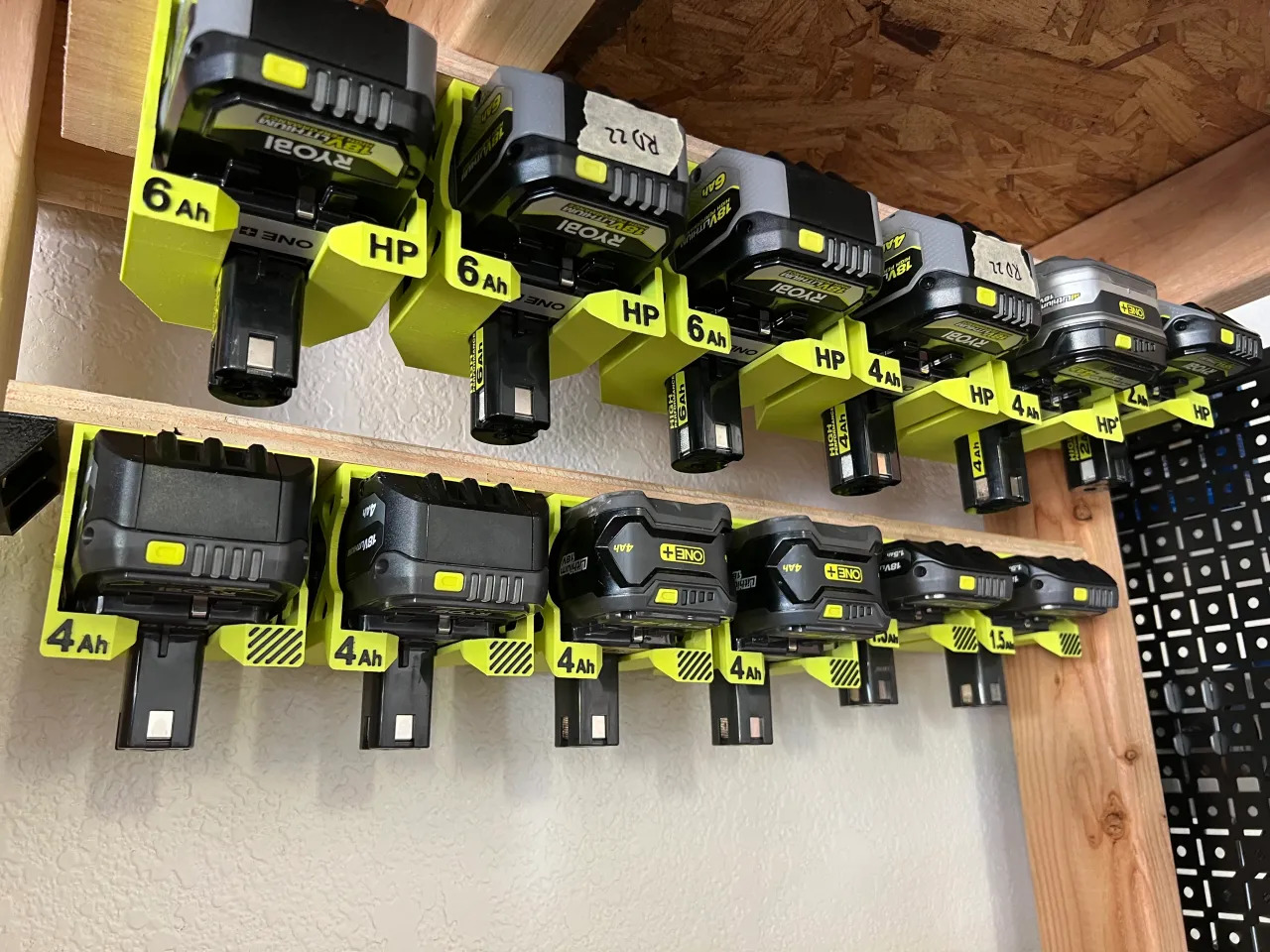
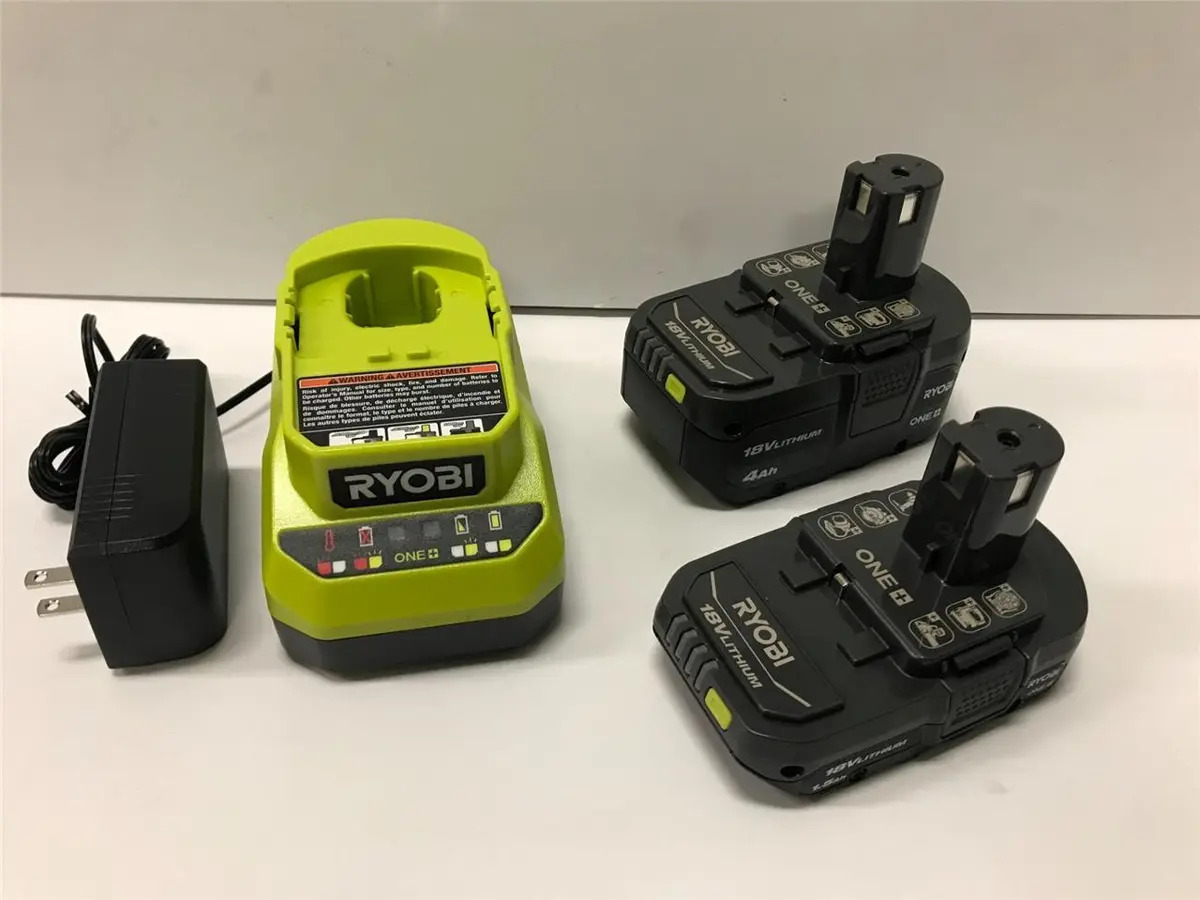
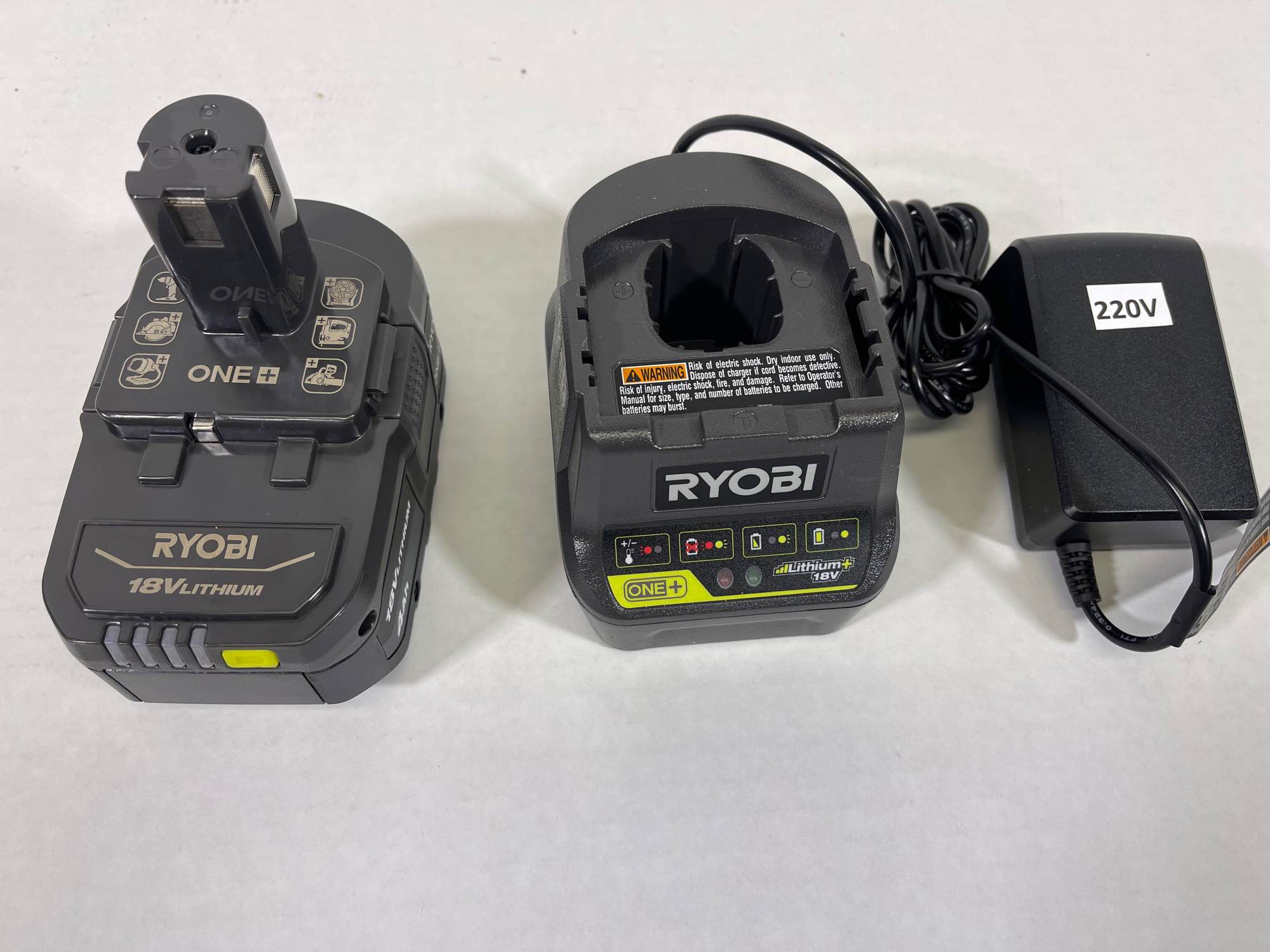
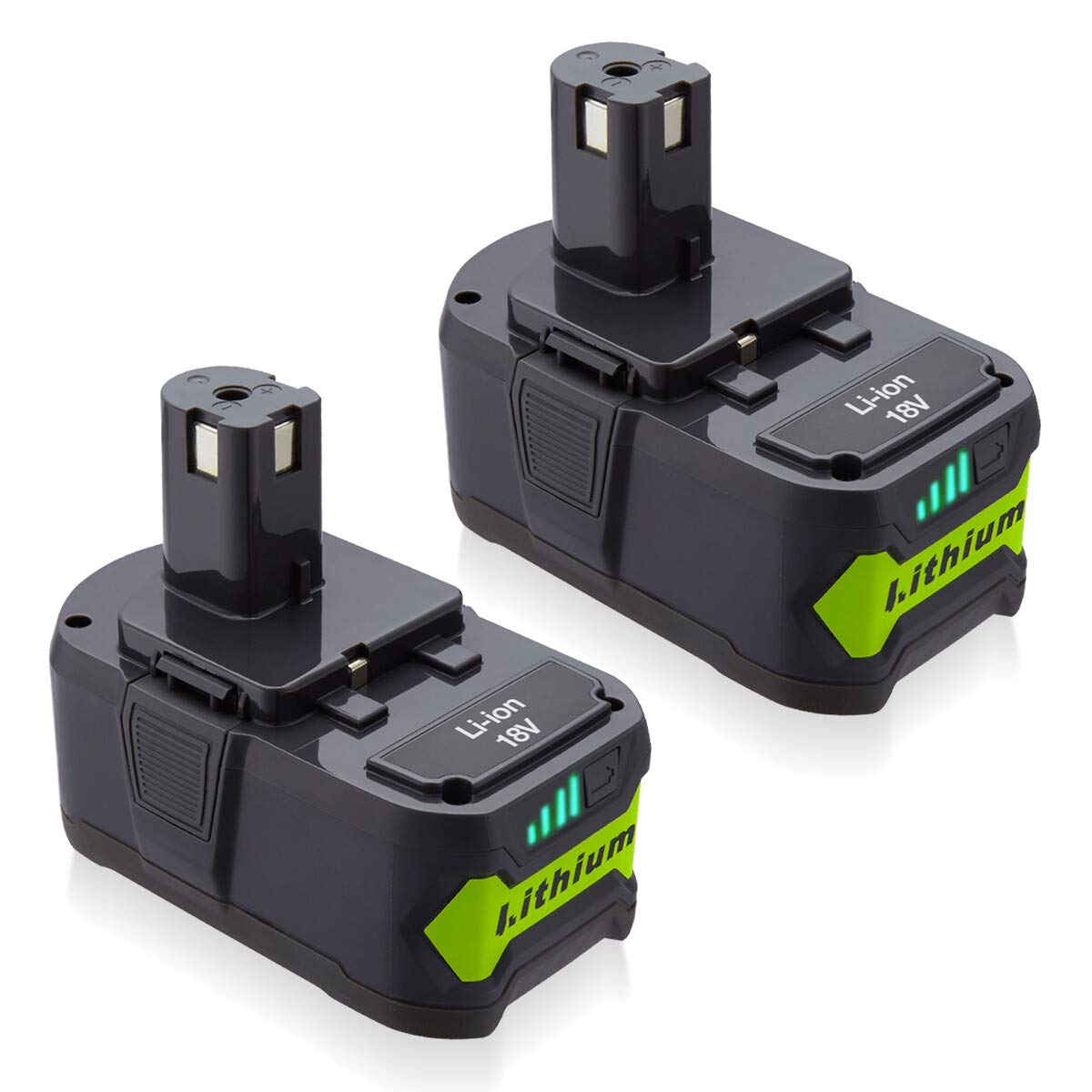
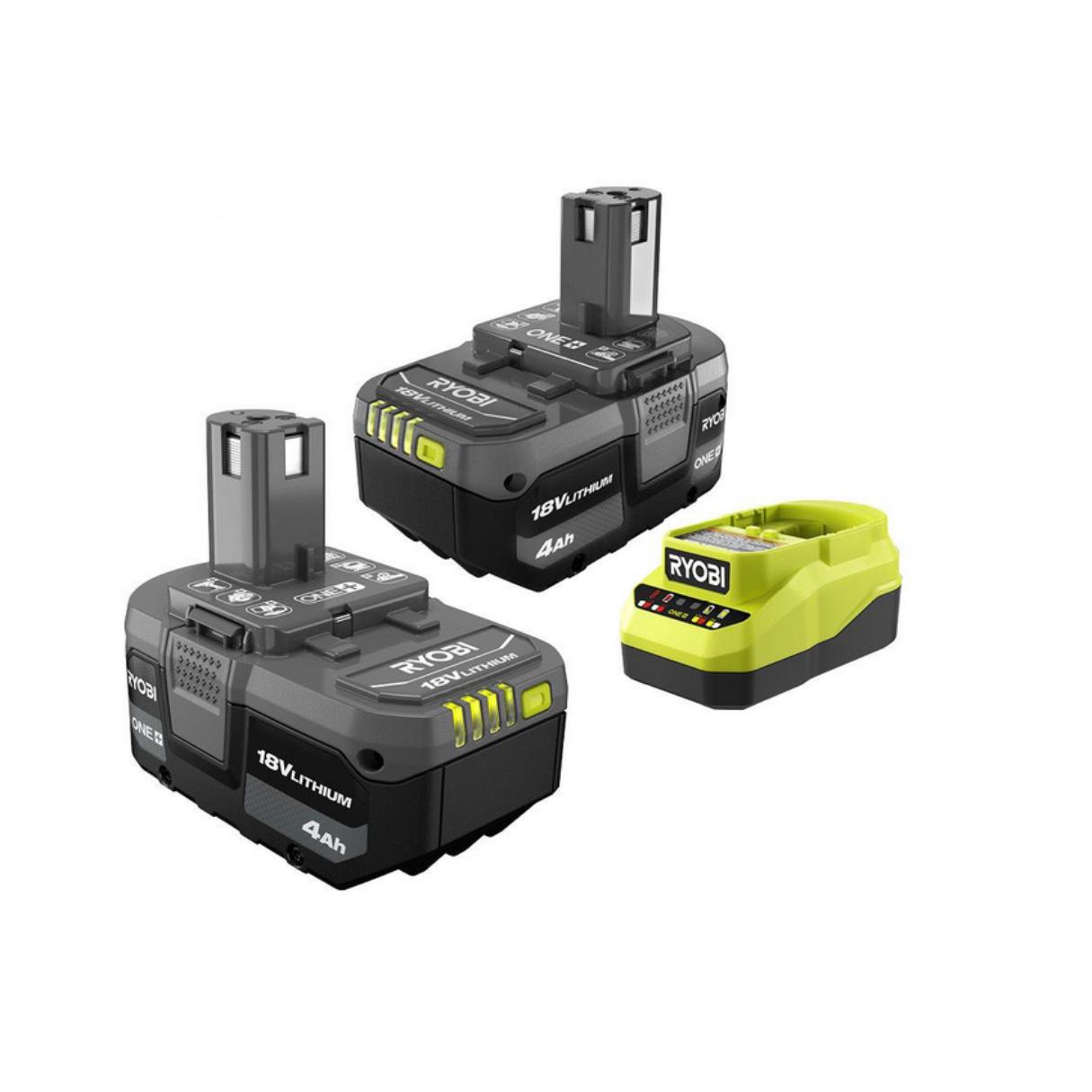
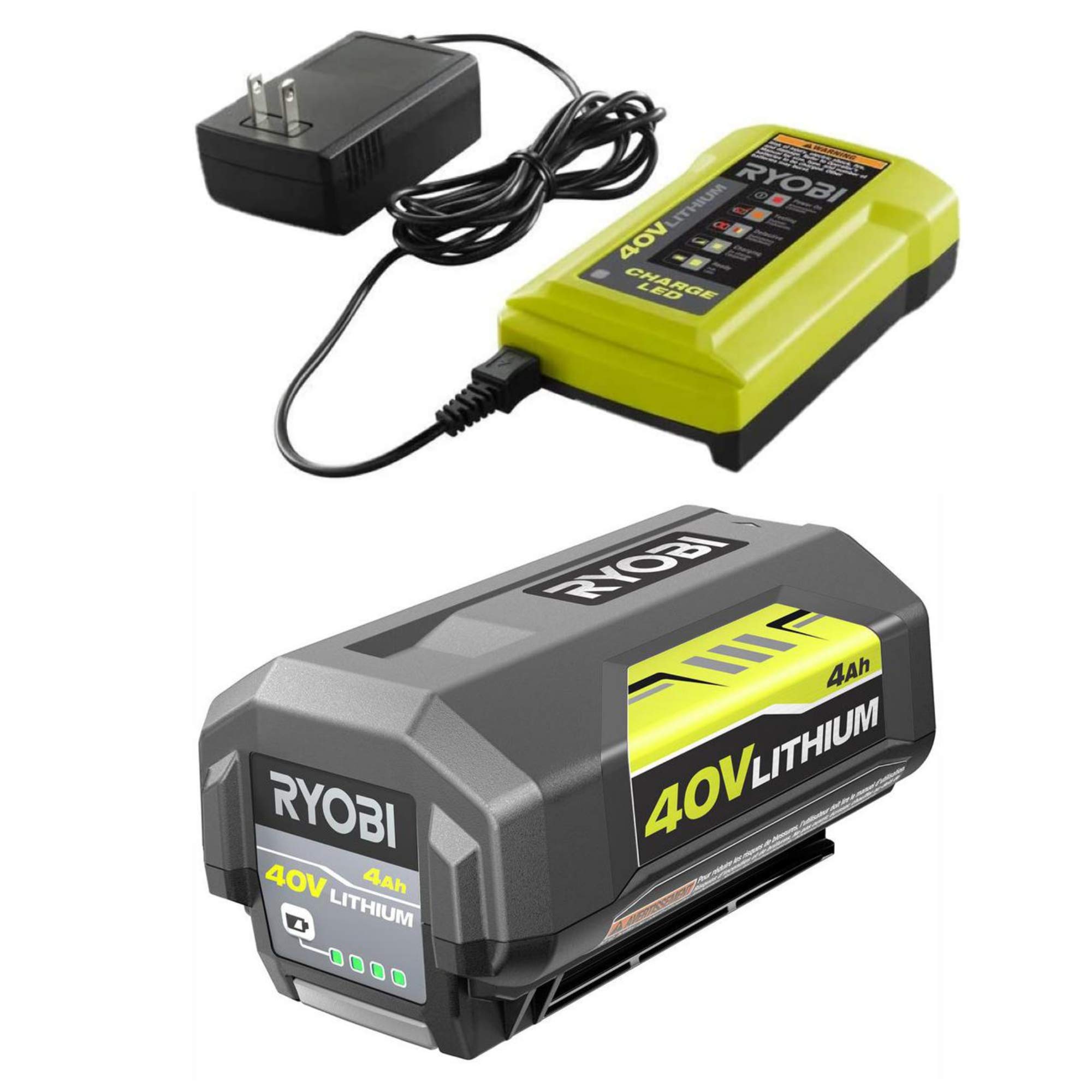

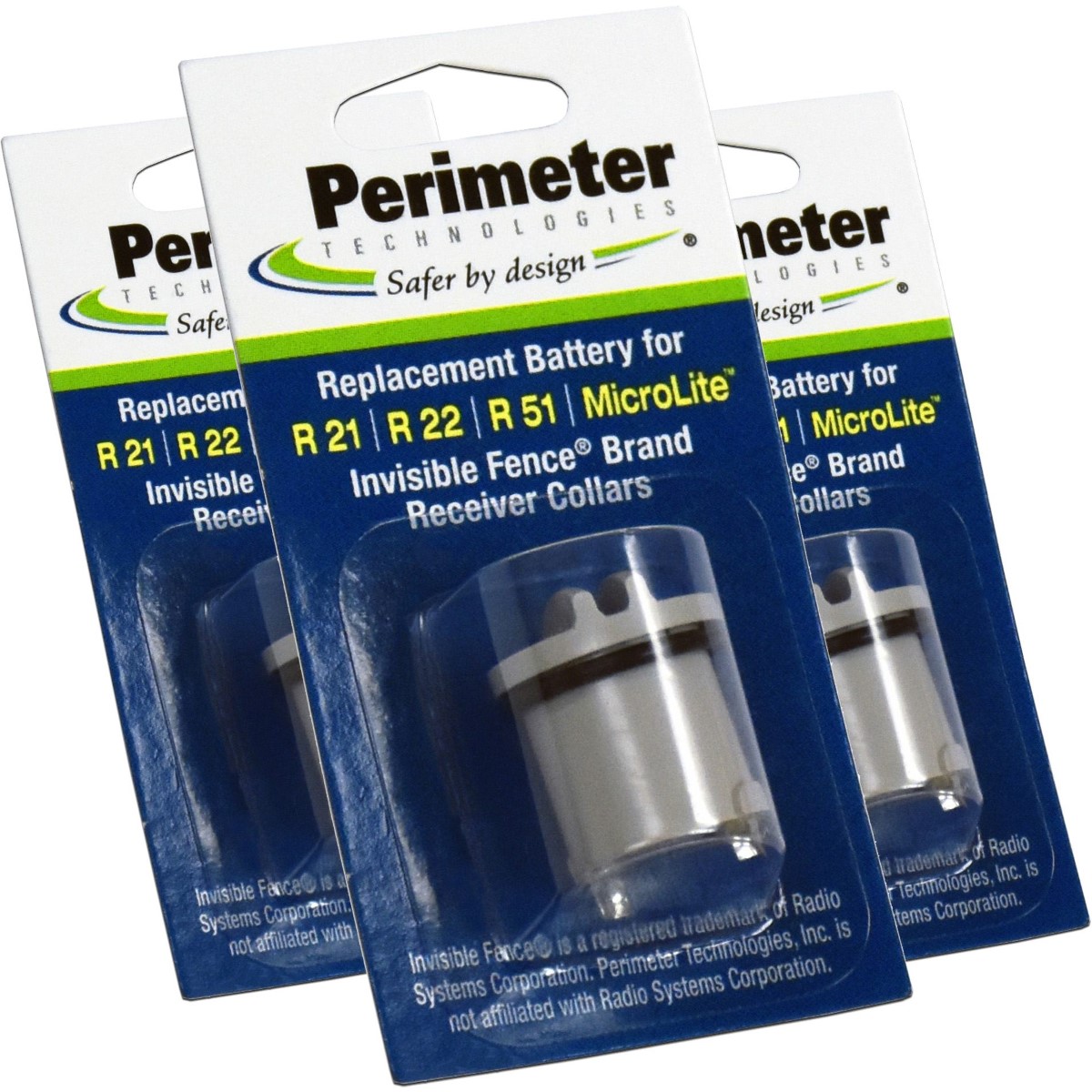

0 thoughts on “Why Do Ryobi Batteries Not Last?”